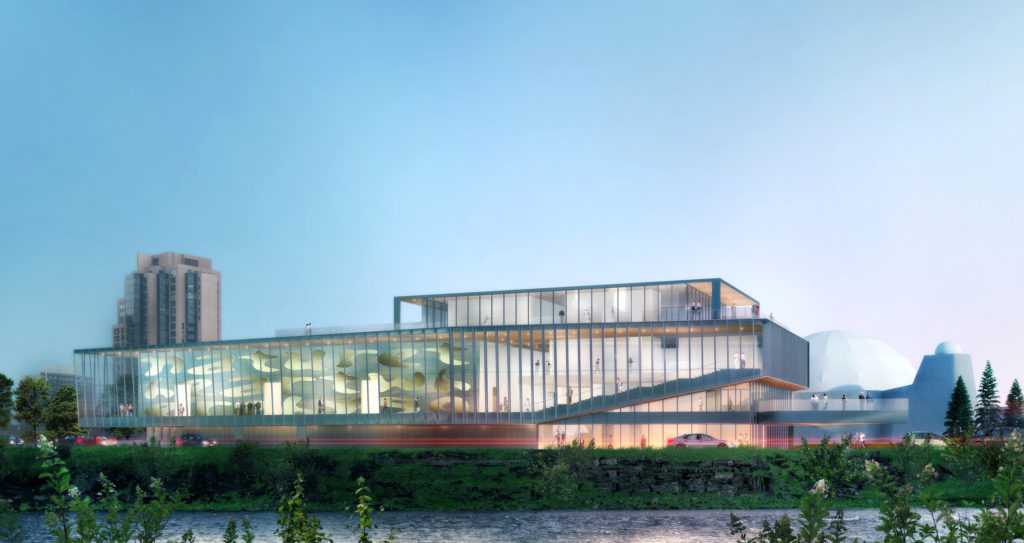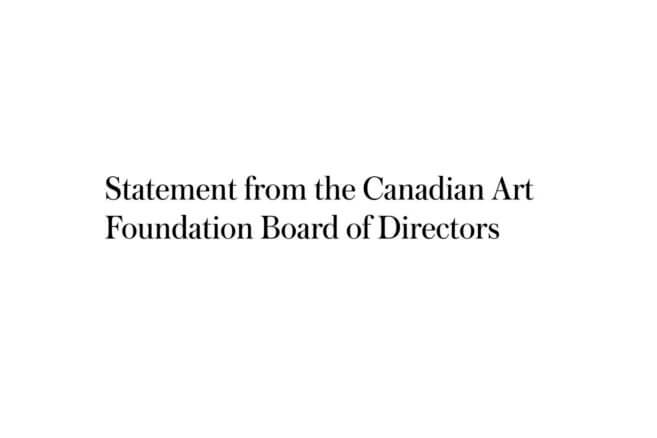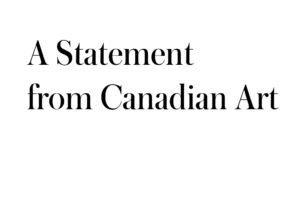Some in Calgary’s arts community are pleased, and others quite concerned, following a recent federal funding announcement in the city.
On Friday, August 30, Calgary Centre MP Kent Hehr announced that the federal government was prepared to give $80 million to Arts Commons and $30 million to Contemporary Calgary to support infrastructure and building projects.
Currently, Arts Commons is working toward a $240 million building project that would see a new, 173,000-square-foot, flexible performance centre created, including 1,550 new seats in three theatres near City Hall. Meanwhile, Contemporary Calgary is raising a total of $117 million in funds to refurbish a 1967 downtown planetarium into a contemporary art gallery and studio spaces.
“[The federal funding] means everything to Contemporary Calgary,” David Leinster, Contemporary Calgary CEO, told the Calgary Herald on Friday. “We’ve got a really important project in the west end of Calgary that’s going to really transform that area of our city, bringing Calgary’s first major modern and contemporary art gallery.”
“The government’s show of support confirms that ACT [Arts Commons Transformation] is exactly the type of project needed to secure a bright future for the city and the province,” said Greg Epton, chief development officer and interim CEO of Arts Commons, in a release.
But not everyone in the Calgary arts community is as keen on this funding announcement.
J.S. Ryu is the CEO of Indefinite Arts Centre, which is billed as “Canada’s largest and oldest disability arts organization.” And Ryu issued an email release of his own on Tuesday, September 3, outlining his concerns about the way this federal funding was disbursed.
“The Contemporary Calgary project, if the province chose to move forward after this announcement, would take away a total of $30 million out of the allocated $140 million [in this type of federal infrastructure funding] for the whole province,” Ryu wrote in his message. “The fact that one project would take almost a third of the total funding dedicated to the province’s arts sector seems shockingly high—and not equitable to the broad diversity of our province’s arts community that share many infrastructure challenges.”
Indefinite Arts is itself one of the organizations in Alberta now facing significant infrastructure issues: part of the building that houses it had a major roof collapse in February 2018.
Asked by Canadian Art for a response to Ryu’s concerns, Contemporary Calgary issued a statement from CEO David Leinster: “We are pleased that our project—which has been decades in the making—has received this funding commitment from the Government of Canada. We note that nothing in the funding announcement precludes funding of other projects, and we wish our colleagues at the Indefinite Arts Centre every success as they work toward advancing their vision.”
Ryu feels that advancing his organization’s vision in the current context remains difficult, however.
“One of the big things we are seeing in Calgary is there is an unfortunate divide between larger, more mainstream established arts institutions and then everyone else,” Ryu tells Canadian Art. “The decisions they make have a ripple effect on the whole arts community.”
For instance, five artist-run centres left their vitrine spaces in Arts Commons last year after administrators asked that a work by a trans artist be removed from one of those windows, Ryu notes.
Ryu also expresses concern that the federal government made the announcement without confirming that provincial funders were on board.
In fact, on Friday, August 30, after Hehr’s press conference, Alberta’s Infrastructure Minister Prasad Panda issued his own statement, calling the federal funding announcement “nothing more than pre-election posturing by the federal government.” According to the Calgary Herald, Panda said that the program Hehr identified for Contemporary Calgary funding “has received over 700 applications, far exceeding Alberta’s available funding allocation.… Our new government needs time to assess the submissions in relation to the priorities of our upcoming provincial budget.”
Ultimately, Ryu says his critique “is not about other arts organizations, it’s about process—and about how frustrating it is when groups like us don’t have the resources.”
“We are serving 320-plus artists weekly in this space that may or may not crumble.”
Natasha Chaykowski is a Calgary writer and curator who is also concerned about the nature of this funding.
“There is such a vibrant art ecology in Alberta, from self-organizing community groups to artist-run centres to experimental theatre companies,” says Chaykowski. “To give $80 million to one organization will compound existing support and resource discrepancies…and could exacerbate the problems that even a lot of bigger organizations face” in terms of funding and attention, she adds.
“What happens when you give an organization with the most power and resources in an ecology even more power and even more of an advantage?” Chaykowski asks. “Bigger isn’t always better.”
Chaykowski also echoes Ryu’s worries about the way the announcement rolled out and the way the funding was allotted.
“It actually sort of eschews much of the due diligence and the processes already in place to allocate arts funding,” says Chaykowski. “To just sidestep that feels a bit reckless to me…and it undermines the hard work many organizations of many sizes in Calgary have done and are continuing to do.”
Artist and community member Justin Waddell is concerned about the potential gentrification effects of the Arts Commons Transformation project.
“The Arts Commons project is part of a redevelopment that will affect the whole area, including [artist-run centre] Stride Gallery, which is in the path of that redevelopment, and Alpha House, and a couple of halfway houses,” says Waddell. “It will displace that community even further.”
Waddell is also critical of Contemporary Calgary’s case for support. On its website, Contemporary Calgary states that “Calgary is the only North American city of its size without a major Class A contemporary art gallery capable of hosting significant international exhibitions.”
“I find their comments around the lack of a major contemporary art spaces in Calgary to be insulting to the 40-plus years of artist-run culture that has been going on in Alberta, and in Calgary specifically,” Waddell says. “Whenever they say the kind of programming Contemporary Calgary would do isn’t occurring or can’t occur, well, I think that’s false.”
Waddell also believes the federal funding announcement, and local celebration, is ill-timed given that the Alberta Foundation for the Arts changed its funding methods this summer in anticipation of arts cutbacks by the new provincial government this fall.
“Everyone is in crisis mode as we await for the [provincial] budget to be announced,” Waddell says of the arts groups in his network. “I think the forecast right now for the arts in Alberta is a lot of fear. So to have Arts Commons trying to celebrate their $80 million in promised funds is upsetting and disheartening. I wish those two organizations would do more to support the artists and centres that are currently struggling.”
Waddell concludes, “I’m concerned this funding will never make its way to individual artists, and support the [wider] arts community.”
Representatives of Arts Commons were contacted by Canadian Art for further comment on these issues, but none was received by press time. Contemporary Calgary was also contacted and did offer an additional statement, included in this article.

 A rendering of the new facility Contemporary Calgary is hoping to build near the banks of the Bow River, at the site of an old planetarium. Image: Facebook / Contemporary Calgary.
A rendering of the new facility Contemporary Calgary is hoping to build near the banks of the Bow River, at the site of an old planetarium. Image: Facebook / Contemporary Calgary.




